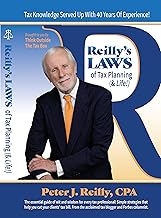Originally published on Forbes.com on August 18th, 2012
I have gone on the record as hoping that Mitt Romney will not do a data dump of 10 or more years of federal tax returns. The reason is quite selfish. I will feel compelled to either look at the damn things, a couple of thousand pages, or feel guilty that I haven’t. How should undecided voters, who must number in the scores, feel about it, though ? They will have the benefit of there being a couple of thousand pages of material that they won’t actually have to look at themselves, but they will get breathless reports that in 2009 Romney’s effective rate was 23.746 % or something like that, so he really wasn’t kidding when he said he paid over 13% in all those years. Most of the reports won’t tell you what is being divided by what to arrive at the percentage. Sometimes the divisor is taxable income and sometimes it is gross or adjusted gross income.
I’m going to break it to you as gently as I can. Someone whose income is disproportionately capital gains who has itemized deductions that wipe out his ordinary income will pay a marginal rate of 15% on any additional income. (I’ll spare you a discussion of the AMT.) If the capital gains are really large the average rate, regardless of how computed, will probably be pretty close to that. We know that Romney did not have capital gains in 2009, because he had a capital loss carryover into 2010. There is no reason to think he was not very charitable, but you cannot wipe out your entire income with charitable contributions. The limit is 50% of adjusted gross income for cash contributions and 30% for gifts of appreciated property. So if he paid anything in 2009, it was probably more than 15% of something. You can see how the numbers work in this piece I did on Warren Buffett last year when the tax blogosphere was obsessing about his percentages.
There is something else that gets lost in the discussion of percentages. People like Warren Buffett and Mitt Romney do a lot of their wealth building not because they pay a lower rate, but because they avoid gain recognition altogether. You don’t necessarily see that from looking at their returns.
The business culture that both Romney and Warren Buffett have operated in, as have I at a much less ethereal level, considers overpaying taxes to be irresponsible. That is the story of Romney’s tax returns. There is a perpetual arms race between people who come up with clever ideas and the taxing authorities. In the nineties and around the turn of the millennium, some of the clever idea people in very prestigious firms got a little carried away and figured out a way to essentially create basis out of thin air, which would mean that nobody with substantial capital gains would ever have to pay tax on them again. Instead they would pay the firm 3% or something like that. It took a while, but that was shut down. If Romney took advantage of that, as Marriott tried to unsuccessfully, it tells us nothing about him that we don’t already know. If he becomes President we would expect him to rely on the Air Force’s judgement as to whether a new plane will fly or not. In business, he would have relied on his tax advisors as to whether a particular tax savings strategy worked.
So why do I write about the returns he has released ? I find our tax system, in its details, fascinating and I like to share that fascination. The Rafalca story, for example, gave me the opportunity to explain both the hobby loss rules and the passive activity loss rules. I also had fun with it. I find “sports” where you have to average the scores of a bunch of judges in order to tell who won kind of ridiculous. It must be some sort of character defect of mine. Also, I get annoyed when people write stupid things about taxes, like anybody who criticized Romney for putting his 2011 return on extension.
The issue in the election, particularly as it relates to taxes, seems to be whether we should put more resources in the hands of capitalists or elected officials. The advantage of assets in the hands of capitalists is that they respond to certain types of feedback better than elected officials. If they make stuff that people don’t like, people don’t buy it and the capitalists lose money, which is something the capitalist don’t like. The problem with capitalists is that they are sometimes indifferent to externalities. Some of them are like George Bailey and some are like Mr. Potter
The proportions vary, but I think Mr. Potter may have been on the upswing recently. We have had historically low tax rates for some time now. There is high unemployment and ordinary savers are getting close to zero returns, while many young people and not so young people are crushed by non-dischargeable student debt. I’m sure somebody can explain to me why that is the fault of government and that if we just stop getting in George Bailey’s way he will help us have a wonderful life, but which candidate do you think Mr. Potter is backing ?
You can follow me on twitter @peterreillycpa.
PS: I know the video clip is outdated, but it had the best George Bailey/Mr. Potter mix I could find.
PPS: On the really important question of who Mr. Potter is supporting Joe Kristan, a fellow tax blogger, tweeted me that since Mr. Potter used the government to squash his competitors that makes him an “O” man. On reflection, maybe the better question is who George Bailey is backing.































































































